APC Chairman Urges Nigerians to Hold Governors Accountable Amid Rising State Allocations The National Chairman of the All Progressives Congress (APC), Professor Nentawe Yilwatda, has called on Nigerians to demand accountability from their state governors and local government chairmen for the hardship they face, stressing that the era of excuses in governance should be over.
APC Chairman Urges Nigerians to Hold Governors Accountable Amid Rising State Allocations

The National Chairman of the All Progressives Congress (APC), Professor Nentawe Yilwatda, has called on Nigerians to demand accountability from their state governors and local government chairmen for the hardship they face, stressing that the era of excuses in governance should be over. Yilwatda made this remark on Monday in Abuja during the public presentation of “Vicious Red Circle,” a new book on human trafficking authored by Alex Oriaku. His statement comes at a time of growing public frustration over inflation, rising living costs, and perceptions of poor governance at the subnational level.
Speaking at the event, the APC national chairman highlighted that the monthly revenue allocation shared among the three tiers of government has significantly increased under the administration of President Bola Ahmed Tinubu. He noted that with the latest disbursements from the Federation Account Allocation Committee (FAAC), governors now receive up to four times more than what they got two years ago and, therefore, should be able to deliver more tangible development projects to their people.
Rt. Hon. Najeem Folasayo Salam: The Quiet Strategist From Ejigbo And His Governorship Prospects
“No governor in Nigeria receives less than three times, up to four times, what they used to obtain before. None. Just two years ago, there was a distribution of about ₦400 billion per month—but today, the last allocation was ₦2.2 trillion,” Yilwatda said. “So, they can do more for their people. No governor receives less than three times. None. They are now focusing on larger projects. And to me, this is the turnaround we need from our governors. I would encourage you to speak to your governors. Speak to your local government chairmen. Let them do more.”
Yilwatda, who assumed leadership of the APC amid public criticism over government economic reforms, defended the policies of President Tinubu’s administration, insisting that the party remains committed to steering Nigeria toward economic recovery and sustainable development. He urged citizens not to lose faith, assuring them that the government’s reforms would eventually yield positive results.
Human Trafficking and the Call for Collective Action
Beyond economic governance, the book presentation also turned into a platform to address one of Nigeria’s most persistent humanitarian challenges—human trafficking. Speakers at the event emphasized the need for urgent, collective efforts to combat the scourge, which continues to tarnish Nigeria’s international reputation as both a source, transit, and destination country for trafficked persons.
Despite two decades of institutional efforts since the establishment of the National Agency for the Prohibition of Trafficking in Persons (NAPTIP) in 2003, Nigeria still ranks among the worst-hit countries in West Africa, with hundreds of victims—mostly women and children—trafficked annually for forced labor, sexual exploitation, and domestic servitude.
The Director-General of the National Intelligence Agency (NIA), Mohammed Mohammed, underscored the severity of the crime, describing human trafficking as “one of the most dangerous transnational crimes, akin to drug and arms trafficking.” He lamented that the practice has eroded social values and stolen the future of countless Nigerians. “Human trafficking has eroded our social fabric and robbed many of our people of their dignity and future,” he said, adding that the NIA continues to provide intelligence and operational support to NAPTIP in tackling the menace.
Mohammed further called for a “whole-of-society approach” to effectively combat trafficking, urging civil society groups, faith-based organizations, traditional rulers, and community leaders to play active roles in identifying and dismantling trafficking networks.
Book Review and Broader Implications
During the event, the President of the Nigerian Institute of Public Relations (NIPR), Dr. Ike Neliaku, reviewed the 198-page book and drew a connection between corruption, manipulation, and exploitation, all of which he said contribute to the persistence of human trafficking. Neliaku condemned what he called the “culture of silence” that allows such inhumane practices to thrive, urging Nigerians to speak up against injustice and institutional failure.
In his remarks, the author, Alex Oriaku, said “Vicious Red Circle” was written to expose the continuous cycle of exploitation and silence that perpetuates human trafficking. “It’s a circle that preys on the desperate, the vulnerable, the marginalized, and the unseen,” he explained. “I wrote it to build a bridge of empathy between the abstract horror of a global crisis and the beating heart of a single, human story.”
Governors Respond to Yilwatda’s Challenge
Reacting to Yilwatda’s comments, Imo State Governor Hope Uzodimma, through his Chief Press Secretary, Hon. Oguwuike Nwachuku, said that his administration is already making significant use of the increased monthly allocations to improve the lives of the people. Speaking to LEADERSHIP newspaper, Nwachuku explained that the government has intensified efforts in providing basic infrastructure across the state.
According to him, Governor Uzodimma’s administration has prioritized road construction, healthcare, and education, as well as workers’ welfare. “Workers in the state now enjoy ₦104,000 as minimum wage,” Nwachuku stated, insisting that the Imo State government remains accountable and transparent in its spending. He added that the increased federal allocations have enabled the state to accelerate development projects previously stalled due to funding challenges.
Opposition Parties Criticize APC Chairman’s Remarks
However, Yilwatda’s remarks drew sharp criticism from the opposition, particularly the African Democratic Congress (ADC). In a statement issued by its national publicity secretary, Malam Bolaji Abdullahi, the ADC accused the APC chairman of hypocrisy, arguing that the ruling party has consistently welcomed corrupt and wasteful governors from opposition parties into its fold.
“Why is the APC chairman sounding so helpless? He knows they have messed up, hence the blame game,” Abdullahi said. “But the APC does not get to play the ruling party and the opposition at the same time. It is deeply hypocritical of the APC chairman. If he knew that most of the governors have been profligate and have actually robbed their own people, why has the party been welcoming them with open arms?”
The ADC’s statement reflects growing discontent among opposition parties over what they see as the APC’s tendency to absolve itself of responsibility for failures in governance, even when the ruling party controls most states in the federation.
As debates continue over how best to ensure accountability and transparency in Nigeria’s governance system, Yilwatda’s remarks have reignited the conversation about the roles of both federal and subnational leaders in delivering dividends of democracy. His call to hold governors and local government chairmen accountable may resonate with many Nigerians—but it also places the spotlight squarely on the APC’s own record of leadership and the integrity of its members across the country.

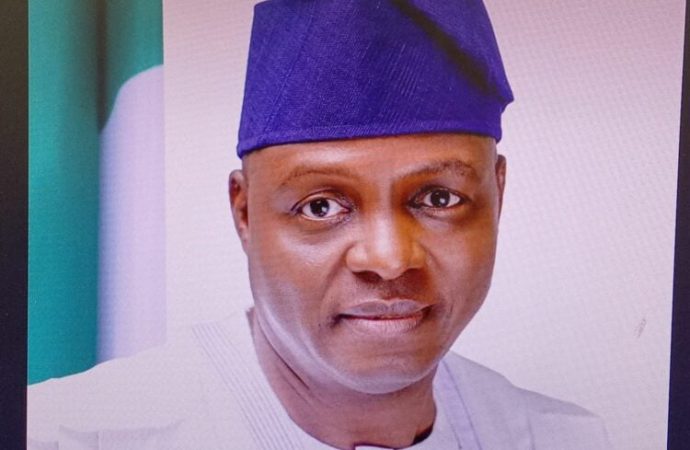
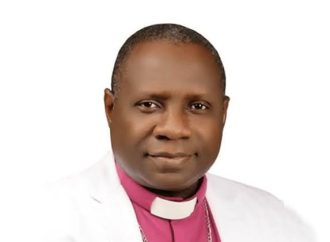
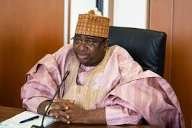
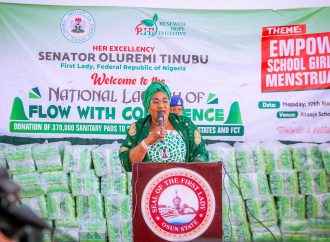
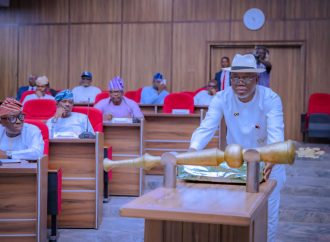

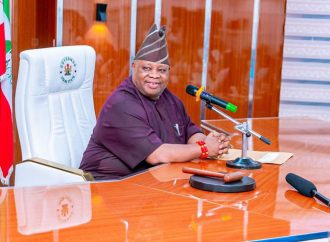


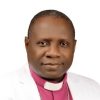
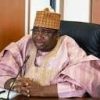
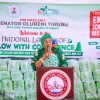






Leave a Comment
Your email address will not be published. Required fields are marked with *